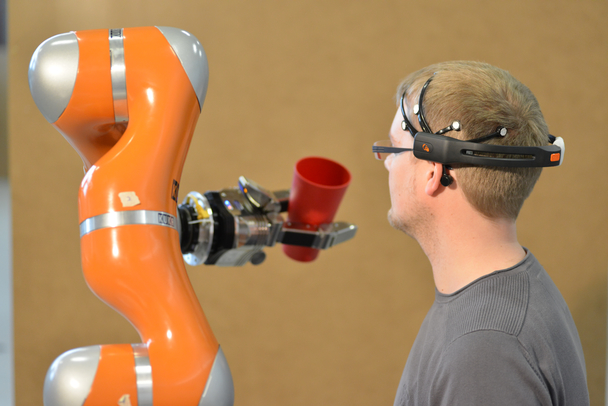
Brain-machine-interface developed by BrainLinks-BrainTools to assist paralyzed patients with drinking. Photo: Gunnar Grah
In a recent article for the „Cambridge Quarterly of Healthcare Ethics“, BrainLinks-BrainTools scientists PD Dr. Tonio Ball, Dr. Philipp Kellmeyer and PD Dr. Oliver Müller (amongst other authors) have addressed neuroethical challenges of closed-loop devices.
Closed-loop medical devices such as brain-computer interfaces are an emerging and rapidly advancing technology that can affect personal autonomy, decisionmaking capacity, and agency of target patients. The Freiburg researchers advocate the development of a comprehensive ethical and legal framework concerning its future medical applications. They also stress informed consent and refusal as a means to foster accountability. To create an international neuroethics task force consisting of scientists from different fields as well as of non-scientists could help to advance these plans.
Original publication: